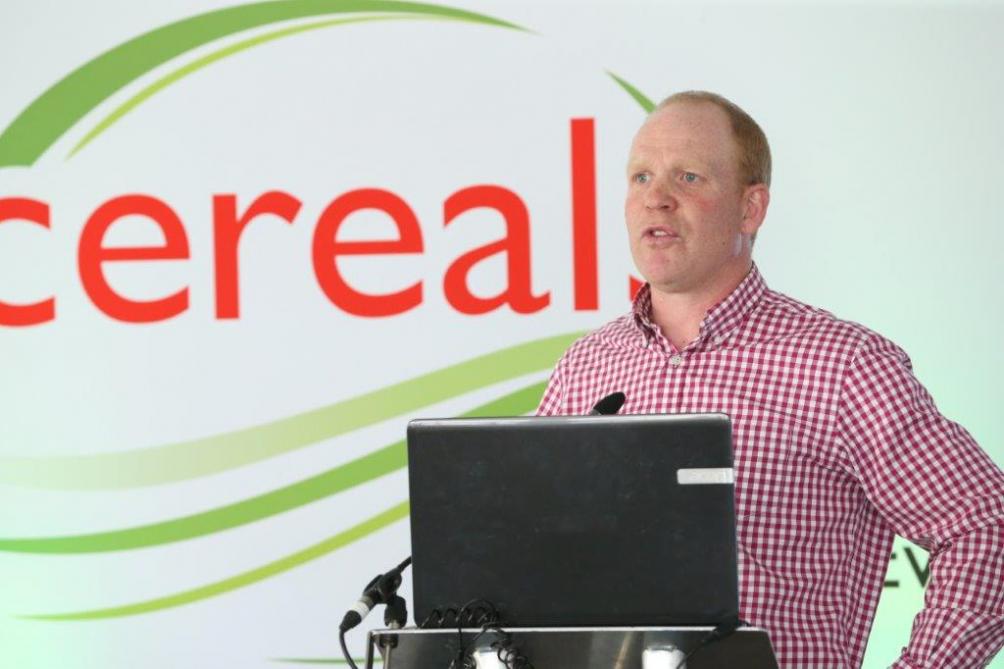Collaboration and Innovation Mean Business
21st June 2017 by OFC

Farmer and former financial adviser Antony Pearce operates two joint farming ventures, 1200ha in Buckinghamshire and 380ha in Cotswolds. By collaborating with other farmers, he has consolidated and grown his own business, as well as theirs.
Collaborating with the competition may seem an odd synergy, but what is healthier than sharing brilliant ideas and making something better between you? Is it not better to work together to create the best model rather than both lose out by going your separate ways? There are no big wins in farming. Like the philosophy of British Cycling (drug scandals apart), it is the cumulation of marginal gains which sets one business apart from another. By working with neighbouring farms and making even small innovations, our farming businesses become more efficient, progressive and often greater than the sum of our individual parts.
Partnerships
Farmers need to collaborate and specialise, so mixed farming doesn't rely on mixed farmers. Eleven years ago, an opportunity came up to go into partnership with a neighbour after our manager retired. It was a natural evolution, and seemed appealing as we already shared a combine, but I had no idea what a difference it would make to our business and what it would lead to. We are now working our assets harder, and each aspect is run by a ‘specialist’, which has brought efficiencies all round.
Machinery
My initial reason for collaborating was to save on machinery costs. The dividends of working together were quickly apparent - I joined Joint Venture Farming Group, a benchmarking group, so I could demonstrate the value of the joint venture to the partners, and it proved that we halved our machinery costs overnight. Group discussion lead to further reducing other costs by 20%. One decision based on the information we gleaned from the benchmarking has paid for any JVFG subscriptions I have or will have to pay - but I realised we could make other assets work harder too.
Other assets
Other agreements have followed which have aided this, including a second machinery joint venture with another nearby farm, and with a young farmer who rents ground and buildings for his cattle. A model subsequently adopted by my latest arable joint venture partner. On the arable side, we need fewer separate grain stores, we can pool storage and use different drying systems to optimise the drying of different crops. Working with a young beef farmer, I can justify renting mixed farms with arable land for my business and forage for his cattle. We have each found our own role where we are best suited: while I do more of the analysis, management and figures, the beef farmers use their experience where it is most needed. These small innovations help all of us make more from our labours by specialising, while we all benefit from economies of scale amplifying the positive impact on each of our businesses.
Problems halved
This collaborative approach brings gains from unexpected places too. It is more fun and problems are halved, you are less isolated and you have two, three, four motivated minds with different experience but all wanting the best outcome.
As farmers, we are busy and it’s hard to keep our eyes above the everyday firefighting and grab the opportunities, but more often than not, opportunities are right there and easier to integrate into our business than we might imagine. Consolidate and improve all the time, even in small steps, innovate and use your assets, including yourself, to their best advantage. Think outside the traditional box.
Fairness
Choose personalities you can work with and make sure you share the financial input and gains fairly, as these are invariably the two reasons for failed joint ventures. And be open. By making yourself open to ideas and people, you attract unlikely contacts with whom you can collaborate, innovate and gain a competitive advantage.
The 2017 Oxford Farming Conference Emerging Leaders Programme was sponsored by Massey Ferguson
Here are details on the Emerging Leaders' Programme. Apply here (Closing date is 29 September 2017).
